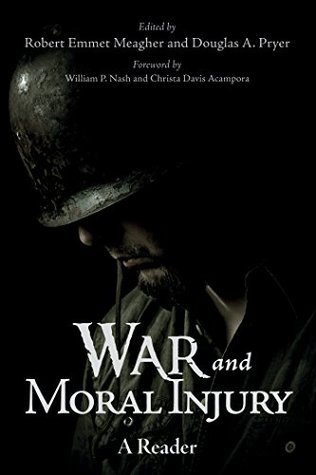Kindle Notes & Highlights
The thought that deploying personnel might incur some form of Moral Injury is unsurprising. In fact, it is rather obvious. The thought that someone might be unaffected by killing other human beings and destroying their property, that someone would be indifferent to a personal encounter with civil chaos and endemic poverty (such as in Somalia), political violence and political “gangsterism” (such as in Cambodia), is actually more surprising. In fact, it is worrying. The idea that observing the outcomes of genocide and ethnic cleansing
If a person is directed to act in a manner that conflicts with their sense of right and wrong; if they find themselves compelled to act in the face of wrongdoing but do nothing; if they acted with the best of intentions but find their actions led to the worst of outcomes, it is very likely that the individual’s sense of themselves will be adversely affected. Why?
That people are morally injured in the course of their service should come as no surprise given that uniformed people are mandated to use lethal force and to deny adversaries material support. A deployed person does not need to see “guts and gore” to be deeply wounded when they believe they have been manipulated or mistreated by those they trusted; they do not need to observe first-hand atrocities like genocide or ethnic cleansing to have their sense of right and wrong disrupted and their conscience badly injured. Meeting those who have committed such acts, and encountering their victims, is
...more
Internally, the morally injured person has a disordered values system that produces either contradictory or condemning attitudes towards self and others. Externally, the morally injured person concludes the world has no ordered values and is, therefore, without point or purpose. I would put the combined effect in Platonic terms: the injury produces a personal narrative in which truth, goodness, and beauty have lost their appeal. Without these things, human life turns into mere existence.
When we met, Gregory was experiencing each of the five most complex features of combat-related distress among contemporary veterans that I have seen over the course of my work and that cannot be easily approached by the dominant psychiatric discourse in trauma care:
There are probably many reasons for this, but in my estimation they probably include (1) a sensitivity to language of the supernatural, and relatedly a sense of hesitation to engage in discussing veterans’ accounts of “evil” that seem to exceed the abstract, necessitating a serious epistemological formulation in response, and (2) the now very wide number of different professionals from the disciplines of psychology, philosophy, theology, and social work engaging the Moral Injury discourse—each with a unique set of presuppositions about the nature of evil and the limitations of the human
...more
will offer three suggestions for caregivers, friends, neighbors, and family members of veterans experiencing this feature, in the hope that it may impact their attempts to love these veterans, no matter their own ontological and existential presuppositions underlying the offering that love.
“Combat-Activated Thymic Disorientation.” 120. The


